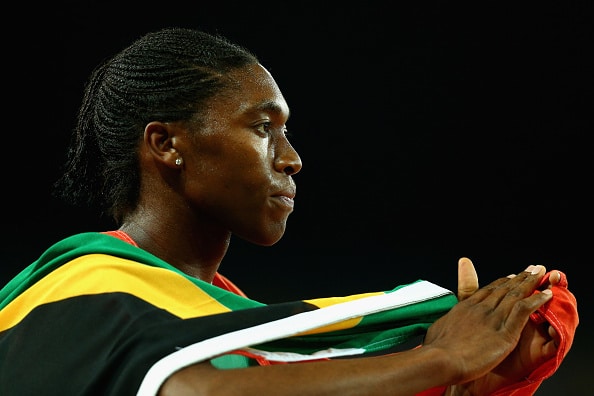The IAAF has denied it will tell the Court of Arbitration for Sport that female athletes with high testosterone levels such as Caster Semenya should be classified as male.
Semenya is challenging a proposed IAAF rule that aims to restrict the levels of testosterone in female runners.
The Times reported that IAAF lawyers will say Semenya is a ‘biological male’ as well as classified as female.
The IAAF said it is ‘not classifying’ any athlete with ‘differences of sexual development’ (DSD) – of whom Semenya is the most notable – as male.
‘To the contrary, we accept their legal sex without question, and permit them to compete in the female category,’ it said in a statement on Wednesday.
‘However, if a DSD athlete has testes and male levels of testosterone, they get the same increases in bone and muscle size and strength and increases in haemoglobin that a male gets when they go through puberty, which is what gives men such a performance advantage over women.
‘Therefore, to preserve fair competition in the female category, it is necessary to require DSD athletes to reduce their testosterone down to female levels before they compete at international level.’
The IAAF intended to implement new rules on 1 November last year, but put that back to 26 March to await the outcome of the legal challenge by Semenya and Athletics South Africa.
Semenya, 28, called the rule ‘medically unnecessary, discriminatory, irrational, unjustifiable’ and a ‘violation of the rules of sport and universally recognised human rights’.
Semenya went on to say that she is ‘very upset’ that she’s been pushed into the public spotlight again, and that she ‘doesn’t like talking about this new rule.’
‘I just want to run naturally, the way I was born. It is not fair that I am told I must change. It is not fair that people question who I am. I am Mokgadi Caster Semenya. I am a woman and I am fast.’
The rules will apply to women in track events from 400m up to the mile, and require that athletes have to keep their testosterone levels below a prescribed amount ‘for at least six months prior to competing’.
The delay means DSD athletes with high testosterone will not be allowed to run for six months from the date any rule change comes in, which may see Semenya miss most of the 2019 outdoor season.
Photo: Getty Images





